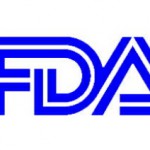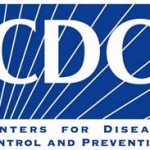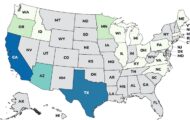Eddy Packing Company Inc. of Yoakum, Texas is recalling about 26,136 pounds of chicken apple sausage that may contain foreign materials. The products were produced February 9, 2012 and were distributed nationally through a warehouse chain on February 14, 2012. Product details: Artisan Fresh, All Natural Chicken & Apple Sausage 1-pound vacuum sealed 3 to a pack USDA mark of inspection Sell-by date of June 23, 2012 36-pound cases Each case has twelve 3-pound packages Establishment number "P-4800" inside the USDA mark of inspection Codes 42450 or P13203 on the label The problem was discovered because of consumer complaints that piece of plastic were in the product. There have not been any reports of illness or injury at this time. If you have … [Read more...]
Wegmans Recalling Pita Bread, Thin Sandwich Rolls
Wegmans is recalling some varieties of their in-house pita breads and thin sandwich rolls sold only on Wednesday, March 28, 2012 because they may contain foreign objects. A damaged conveyor belt may have put metal or plasticized fabric pieces in these products. Product details: Wegmans Pita Bread, White 14 ounces UPC number 77890-11363 Best if used by date of 4/3 Sun Wegmans Mini Pita Bread, White 12 ounces UPC number 77890-17127 Best if used by date of 4/3 Sun Wegmans Food You Feel Good About 100% Whole Wheat Mini Pita Bread 12 ounces UPC number 77890-17130 Best if used by date of 4/3 Sun Wegmans Food You Feel Good About Multi Grain Mini Pita Bread 11 ounces UPC number 77890-18328 Best if used by date of 4/3 Sun Wegmans … [Read more...]
Study Confirms Oil from Deepwater Horizon Disaster Entered Food Chain
A new study has confirmed that oil from the April 20, 2010 Deepwater Horizon oil spill disaster has entered the food chain in the Gulf of Mexico. The study was led by East Carolina University along with the University of Maryland Center for Environmental Science, Georgia Institute of Technology, and U.S. Geological Survey. Food Poisoning Bulletin reported more than two months ago that senators from the Gulf states wanted the FDA to stress that food from the Gulf of Mexico was safe to eat. Consumers groups questioned that determination for several reasons, including the amount of seafood consumed by the groups studied. The well was capped on July 15, 2010, three months after the explosion. Oil from every well has a unique "fingerprint". Polycyclic aromatic hydrocarbons, which are … [Read more...]
FDA Warning Letters for Week of March 14, 2012
These are the FDA Warning Letters to food establishments, producers, and farms for the week of March 14, 2012. The most notable letters include a tofu plant with "black build-up" on its equipment (6), and a facility with rodent pellets, rodent traps that held decaying rodents, and rodent gnawed food (7). 1. Creekside Springs, LLC in Salineville, Ohio. This facility processes bottled water. The products processed at this facility are adulterated because they are prepared, packed, or held under unsanitary conditions. They may be contaminated with filth and may be harmful. Water-contact surfaces were not kept clean, and current certificates and notifications of approval were not on file. The source and supply of the water did not have government approval. The ozone levels in the finished … [Read more...]
CDC Lacks Funding to Establish Food Safety Centers of Excellence
The Centers for Disease Control and Prevention is reportedly short the $2.75 million needed to establish five food safety centers of excellence around the country. The centers were included in the 2011 Food Safety Modernization Act, but budget constraints have prompted the CDC to wait until enough targeted funding is available before going ahead. The report of a shortfall comes out of Minneapolis, where the University of Minnesota's School of Public Health established a working group to develop criteria for evaluating the would-be centers. Craig Hedberg, a food safety expert at the school, said the working group received a memo from the CDC laying out the issue. The memo reportedly said that a slight increase in food safety funding will help address urgent food safety priorities, … [Read more...]
New Jersey Firm Accused of Making Ricotta Cheese From Condemned Milk
A New Jersey cheese company has been charged in U.S. District Court in Pennsylvania with shipping adulterated ricotta cheese that was unfit for human consumption. According a press release from the prosecutor's office in the Eastern District of Pennsylvania, Lebanon Cheese Company, of Lebanon, N.J., and the company’s president, Joseph G. Lotito, 42, of Annandale, NJ, allegedly sold cheese made from truckloads of raw milk that had been condemned by state dairy processors for excessive antibiotics. It is alleged that from about January 2008 to about July 2009, D.A. Landis Trucking, Inc. (charged separately) hauled milk from approximately 700 individual dairy farms in Southeastern Pennsylvania to large dairy processors. At least 20 of these loads allegedly tested positive for beta … [Read more...]
Los Alamos National Lab Joins Federal Grant Study of E. coli in Beef
Los Alamos National Laboratory in New Mexico has joined a large federal grant study aimed at reducing toxic E. coli contamination in the U.S. beef supply. According to a Los Alamos news release, a team of researchers will focus on early detection efforts and multiple-sampling capability to speed response time. The scientists believe they can screen multiple samples for multiple Shiga toxin-producing E. coli (STEC) markers simultaneously rather than the current method of one marker at a time. The Los Alamos team will use a waveguide-based bio-sensor as its platform for STEC detection. "The goal of this research is to identify and control STEC within the beef chain and substantially mitigate the risk of STEC infections associated with beef products through cutting-edge research, … [Read more...]
Pasteurization Problem Causes Milk Advisory by Wisconsin Dairy Plant
Castle Rock Organic Farms whole milk, made in Osseo, Wisconsin, should be discarded if it is dated February 29. The dairy plant said the milk was not properly pasteurized and the Wisconsin Department of Agriculture, Trade and Consumer Protection confirmed the inadequate pasteurization through testing. Food safety officials are unaware of any illnesses related to the defect. The milk was sold in half-gallon and quart glass bottles. It has a sell-by date of Feb. 29 and dairy plant number of 55-1951 on the bottle. It is believed to have been distributed in Wisconsin, Minnesota and Illinois. According to the company's website, Festival Foods stores in the Green Bay area sell most Castle Rock Organic products. … [Read more...]
Massive Butter Recall in New Zealand
Fonterra Brands New Zealand has recalled 410,000 packs of butter after consumers found "fine metal objects" in the dairy product. The company said that "two isolated complaints" were received in January and again on February 9, 2012. Product details: Mainland Salted Butter 500 gram packs Code "Batch CV12" Best before date January 10, 2013 Anchor Salted Butter 500 gram packs Code "Batch CV28" Best before date January 26, 2013 The butter was packaged at Fonterra's manufacturing site in Whareroa, at the nation's largest butter plant. The products were sold in New Zealand stores. The company has not received any reports of injuries in connection with consumption of this product. Fonterra asks that anyone who bought this product, or knows of family or … [Read more...]
Market Pantry Honey Recalled
Market Pantry pure grade A honey is being recalled, according to the weekly FDA Enforcement Report for February 8, 2012. The volume of product in commerce stands at 3525 cases, or 42,300 units. Product details: Market Pantry pure grade honey grade A Net Weight 12 ounce (340 grams) Recall # F-0640-2012 Lot 1174 Expiration date "Best by 27 JUN2013 Recalling manufacturer is Honeytree, Inc. of Onstaed, Michigan. Recalled by letter on December 17, 2011. Firm initiated recall is ongoing. Product contained 10.3 parts per billion of sulfathiazole, a short-acting sulfa drug. Distribution was nationwide. The recall doesn't specify what to do with the product if you have it. We assume you shouldn't consume it. This is a Class III recall, which means that consuming the … [Read more...]










